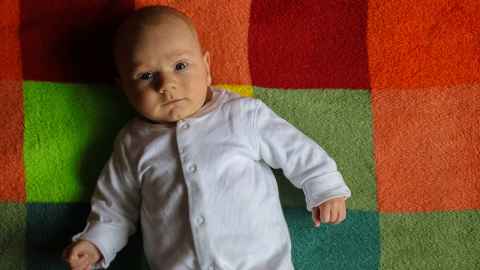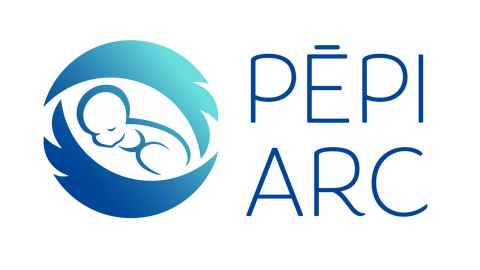PĒPI ARC Study
PĒPI ARC is a pilot study, investigating the feasibility of implementing the New Zealand Best Practice Recommendation for Early Detection of Cerebral Palsy (CP), Surveillance and Intervention, through an early detection PĒPI ARC Hub in Wellington, New Zealand.

What is the PĒPI ARC hub?
The Hub will support babies and whānau who have accessed the Wellington NICU and includes whānau from Wairarapa, Whanganui, Hawkes Bay, Nelson-Marlborough, Hutt, Capital Coast and Mid Central regions.
The PĒPI ARC Hub has two components to it to suit the circumstances of the whānau:
- A multidisciplinary face-to-face clinic for babies and their whānau who live in Wellington.
- A virtual Hub to provide support whānau and babies who live outside of the Wellington area to have early movement checks, working in close partnership with them, their local doctors and therapists.
The two parts of the Hub will enable flexible access to early movement checks and support for all pēpi and their whānau, and for their clinicians, no matter where they live. The Hub will give whānau a chance to talk about what the assessments mean for their baby. For the small number of babies who may be detected as having CP, the hub will help link in their whānau with the right support.
Why is this study important?
PĒPI ARC stands for Partnering Early to Provide for Infants At risk of Cerebral palsy. CP is the most common disability in childhood. In New Zealand (NZ), it is estimated a baby with CP is born every 3 days. CP is caused by abnormal development of the brain, or damage to the developing brain most often occurring during pregnancy, birth or soon after birth.
We know that babies born very premature (< 30 weeks gestational age), very small (< 1000g or < 3rd centile for gestational age) or whom were very unwell early in life and needed admission to a neonatal intensive care unit (NICU) have a higher risk of neurodevelopmental impairment, including CP.
Infants are now able to be detected with CP or be identified as having high likelihood of CP as early as 3 months of age through the combination of three evidence-based diagnostic tools: General Movements Assessments (GMA - assessment of babies’ movements), Hammersmith Infants Neurological Examination (HINE - standardised neurological assessment), and brain imaging. The GMA and HINE are early movement checks which can be conducted in any setting e.g., the family home, community clinic or NICU.
However, a large gap exists between the evidence-based practice recommendations and the clinical reality in NZ. At the moment less than 40% of children with CP are diagnosed before 12 months of age, with the average age being 19 months.
What is PĒPI ARC trying to find out?
THE PĒPI ARC study is trying to find out if an early detection Hub can increase equity in accessing early movement checks for babies with a high likelihood of CP admitted to the Wellington NICU, no matter if they live in Wellington or another region. We also want to know if we can reduce the age at CP detection, if we can improve how information of CP or high likelihood of CP is communicated with whānau, and if whānau and clinicians find the PEPI ARC hub helpful, easy to access and culturally welcoming.
The PĒPI ARC team is now recruiting babies in the Wellington NICU. In collaboration with whanau, we have developed many resources for whānau and clinicians including our PEPI passport which is in Te Reo and English.
Please contact us if you would like more information: pepiarc@ccdhb.org.nz
Investigators
Dr Angelica Allermo Fletcher
Dr Sian Williams
Dr Gaela Kilgour
Dr Stephanie Swallow
Sally Kidd
Alison Sheppard
Wyllis Korent
Dr Sue Stott
Dr Malcolm Battin
Shannon Unka
Carol Dunn
Helsa Fairless
Karen Bennington
